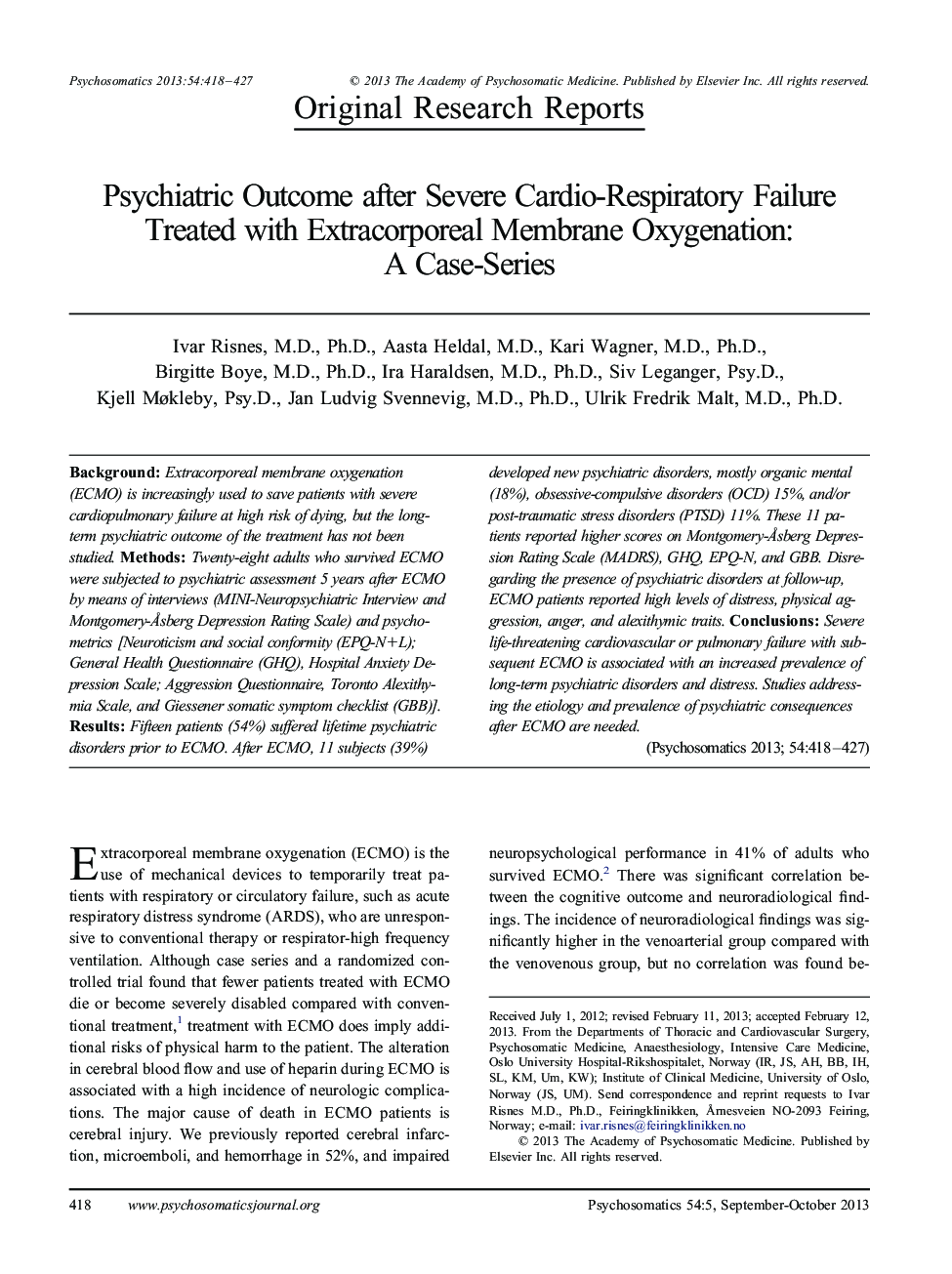| Article ID | Journal | Published Year | Pages | File Type |
|---|---|---|---|---|
| 337828 | Psychosomatics | 2013 | 10 Pages |
BackgroundExtracorporeal membrane oxygenation (ECMO) is increasingly used to save patients with severe cardiopulmonary failure at high risk of dying, but the long-term psychiatric outcome of the treatment has not been studied.MethodsTwenty-eight adults who survived ECMO were subjected to psychiatric assessment 5 years after ECMO by means of interviews (MINI-Neuropsychiatric Interview and Montgomery-Åsberg Depression Rating Scale) and psychometrics [Neuroticism and social conformity (EPQ-N+L); General Health Questionnaire (GHQ), Hospital Anxiety Depression Scale; Aggression Questionnaire, Toronto Alexithymia Scale, and Giessener somatic symptom checklist (GBB)].ResultsFifteen patients (54%) suffered lifetime psychiatric disorders prior to ECMO. After ECMO, 11 subjects (39%) developed new psychiatric disorders, mostly organic mental (18%), obsessive-compulsive disorders (OCD) 15%, and/or post-traumatic stress disorders (PTSD) 11%. These 11 patients reported higher scores on Montgomery-Åsberg Depression Rating Scale (MADRS), GHQ, EPQ-N, and GBB. Disregarding the presence of psychiatric disorders at follow-up, ECMO patients reported high levels of distress, physical aggression, anger, and alexithymic traits.ConclusionsSevere life-threatening cardiovascular or pulmonary failure with subsequent ECMO is associated with an increased prevalence of long-term psychiatric disorders and distress. Studies addressing the etiology and prevalence of psychiatric consequences after ECMO are needed.
